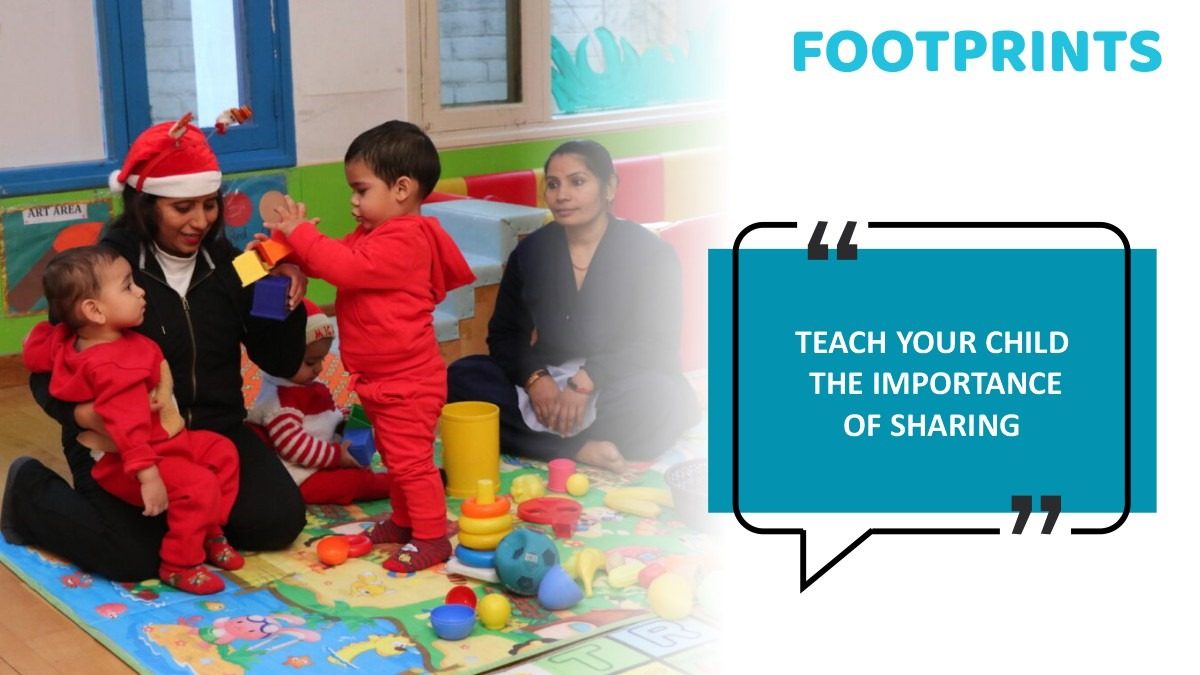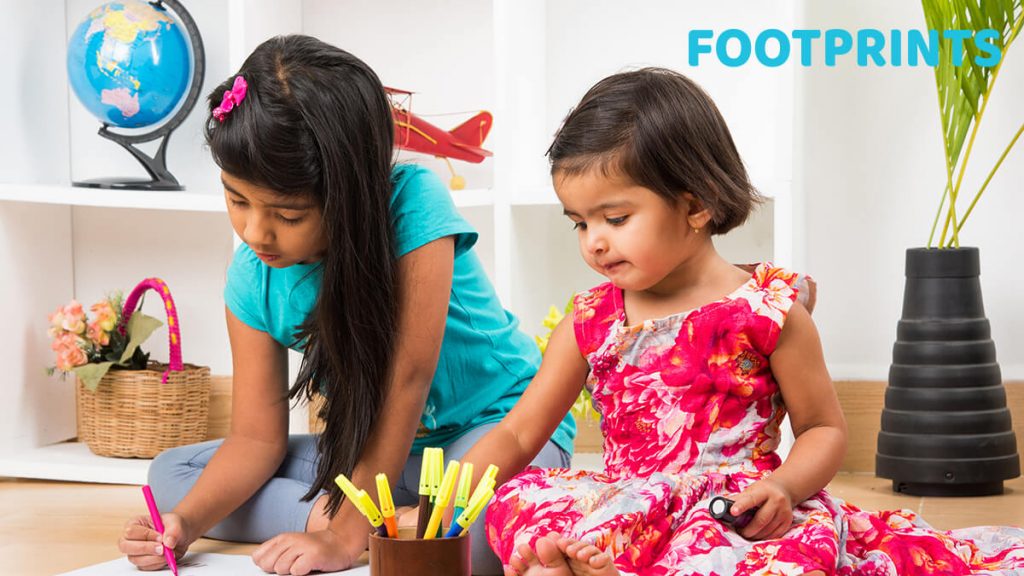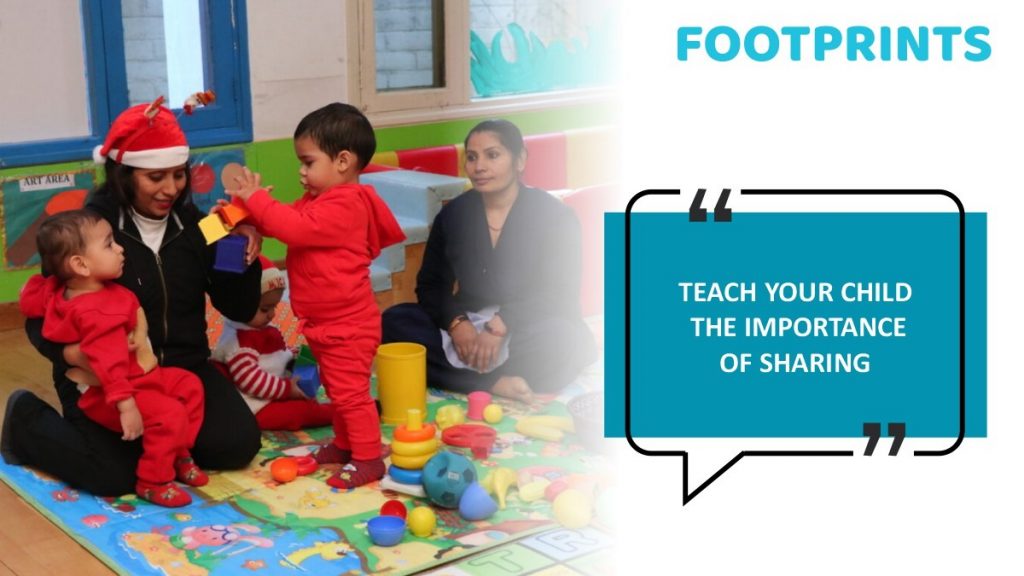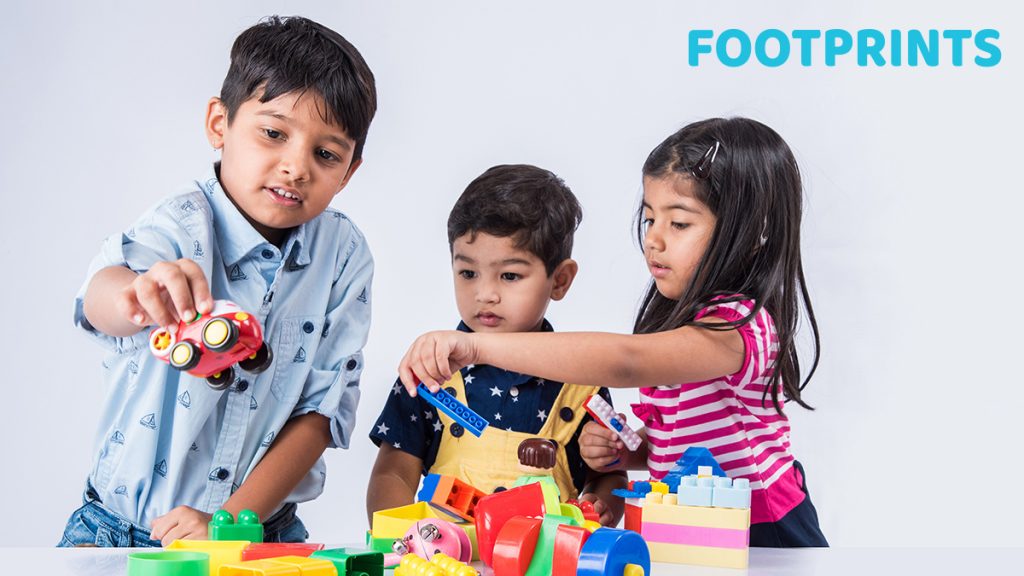
Parenting challenges in the contemporary era are heightened due to various factors, including the prevalence of an excessively consumerist society. Consequently, from a young age, children are inundated with subtle messages that convey the notion that more extensive or more possessions equate to a better life. The influence of peer pressure, exposure to pervasive advertising, and other societal factors contribute to their ongoing demands for an ever-increasing array of materialistic desires. In such circumstances, instilling a sense of empathy in children or imparting the crucial lesson of sharing can seem like an impossible challenge. If you encounter obstacles in this aspect of parenting, assistance is available. The following suggestions aim to help you seamlessly integrate the value of sharing into your child’s life. Here’s how:
10 Ways To Teach Sharing To Preschoolers
1. Be a good role model
Children tend to adopt behaviors based on observation rather than verbal instructions. Given this reality, it is crucial that the sharing lesson is not merely conveyed through words in books but is also experienced firsthand. As parents and caregivers, it is imperative to serve as role models in sharing. Whether you share possessions with your child or actively share your privileges with the less fortunate, you can exemplify the gratification of sharing through various means. Before long, you will notice the child internalizing these values, manifesting them in their daily life.
2. Group activities
Facilitating your child’s interaction with peers of the same age can be highly beneficial. Whether it involves a trip to the park, arranging playdates, or visiting an orphanage, each scenario presents an opportunity to instill the importance of sharing. You must actively encourage your child to share their possessions in these situations. In our contemporary era of instant gratification, imparting such valuable lessons will undoubtedly contribute to the child’s long-term well-being.
3. Your turn-my turn
In nuclear families with limited or no siblings, children are frequently accustomed to being the focal point of attention. Consequently, they may not be accustomed to waiting for anything. Parents, at times, may compensate for the time they cannot spend with the child by providing excess material possessions. Engaging in simple games requiring each player to wait patiently for their turn can be valuable lessons in patience and sharing.
4. Reading together
Indeed, reading offers numerous advantages, including exploring stories imbued with moral lessons. Delving into narratives that vividly illustrate the pleasures of sharing provides invaluable teaching moments. Such stories may prompt conversations about personal experiences by sharing and elucidating how they brought joy to others and contributed to personal growth. These moments hold the potential to be transformative and enlightening for the child. They go beyond mere storytelling, offering the child profound insights that significantly influence their comprehension and integration of essential life lessons. In these instances, the child not only comprehends the concept of sharing on a theoretical level but also experiences a deeper understanding of its impact on personal growth and the well-being of others.

5. Eating together
Engaging in simple rituals, such as communal meals where you share your favorite dishes, can seamlessly transform into valuable lessons in sharing. Gradually, this practice becomes ingrained in the child’s lifestyle, evolving into a habit of offering what is on their plate literally and extending to figurative expressions of generosity.
6. Sharing simple pleasures of life
In addition to sharing meals, consider intentionally partaking in the simple pleasures of life together, such as taking a brief nature walk or enjoying a music jam session. These shared experiences foster a deeper connection between you and the child and encourage them to open up and willingly share the delightful moments in life with others.
7. Share responsibilities
Imparting the lesson of sharing responsibilities is crucial in nurturing children from an early age. The goal is to steer them away from developing a sense of entitlement, where they seek rights without embracing corresponding responsibilities. To instill this, assign age-appropriate tasks from their early years—assisting in setting the table or organizing their toys. Engaging in these modest responsibilities cultivates a shared duty habit and contributes significantly to developing their self-esteem.
8. Positive affirmation
Ensure that, when the child demonstrates an effort to share, you express appreciation for their actions. Emphasizing the positive impact, such as highlighting how it brought happiness to the other child, plays a pivotal role in reinforcing and solidifying this behavior within the child.
9. Do not be a rescuer
Frequently, in our affection for our children, we may find ourselves paving the way for them instead of equipping them for the challenges ahead. It’s crucial to remember that conflicts with other children may arise as you introduce the concept of sharing to your preschooler. During these instances, consider taking a step back and allowing the child to independently navigate and resolve the differences. If necessary, offer guidance to facilitate collaboration between the children. Of course, it goes without saying that if the disagreement escalates into physical confrontation, immediate intervention is imperative.
10. Be realistic
As your child begins to grasp the notion of sharing, it’s essential to approach it with a sense of realism. Merely instructing them on sharing might not immediately translate into flawless sharing behavior. While you can establish consequences for not sharing, it’s crucial to ensure that these consequences are age-appropriate. Additionally, please exercise caution when your child has a cherished toy that they are reluctant to share. In the initial stages of teaching the sharing lesson, it’s acceptable to set aside that specific toy during playdates temporarily.
To Sum Up
By consistently integrating sharing into daily life, you can be confident that the child will internalize this valuable lesson. Your role in shaping a society rooted in empathy and kindness is pivotal and undeniable. At Footprints, a renowned play school that has established itself as a preferred parenting partner, considerable emphasis is placed on fostering children’s social and emotional development. The design of classrooms and daily routines is geared towards cultivating competence and facilitating positive social interactions. Here’s to nurturing a generation marked by empathy and understanding!
Aditya brings over ten years of expertise as a Senior Marketing Strategist. He’s an expert at developing captivating marketing tactics that regularly provide excellent outcomes. His innovative strategies have demonstrated a track record of increasing organizational reach and engagement, showcasing his extensive knowledge of the contemporary marketing landscape.



